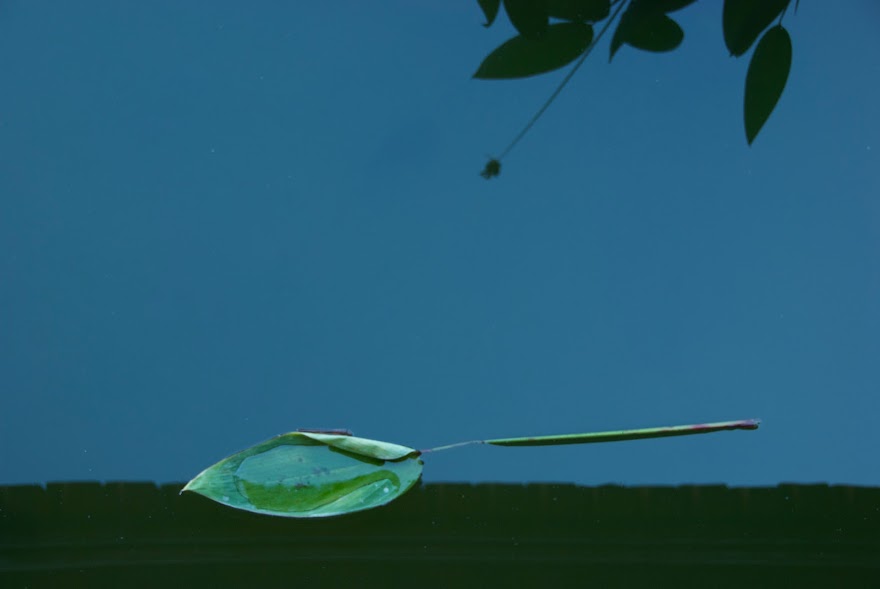I’ve been in Durban almost three weeks and today was the first I have done no boat work. Handing sails over to the sailmaker for minor repairs to be expected after 16,000 miles and to have a fourth reef sewn in the main doesn't count.
Because of the positioning of a fitting at the bottom of the Tides Marine mainsail luff track, I practically had to disassemble the boat to remove the fully battened mainsail.
GANNET looks naked without sails.
Yesterday I attacked mold over the starboard pipe berth, the last area I had yet to reach, except the dead area aft of the pipe berths that I’m not going to attempt to reach. I blindly sprayed ExitMold in the direction of the transom and retreated coughing. Good luck to whatever is living back there.
While in the vicinity I counted the bags of freeze dry food stowed aft. There are five bags of thirty meals each. I’ll buy some more, but that might be enough to finish the voyage.
What I did do today was make reservations for the two weeks Carol and I are going to be South African tourists, starting late this month. Even with the Internet, a cumbersome and tedious task.
———
Here is the GANNET to do and buy list as it now stands. Currently it has an unfortunate tendency to grow rather than diminish.
*Windex
#shock cords
*dry everything
*clean mold
#Tides Marine track repair
dodger?
#sail repair and fourth reef in main; new mainsail,
tiller covers?
#Apple lightning cables
*laundry
Yellowbrick mount
headlamp
coffee container
waterproof food bag
winch handles
#Raymarine masthead wind unit
Wipes
Torqeedo battery?
Velocitek battery cover
electrical connections, crimp tool, fuses
touch up paint: deck, rub rail, cockpit, hull?
Icom handheld VHF radio bracket
haul and antifoul
Those marked * have been done; with # have been initiated.
Many are things that I can more easily buy back in the U.S. Many are replacements due to water damage.
———
Eight days ago I received the following in an email:
Despite the big wind and waves, anchored ships and no protection from the elements, your description is without any hint of fear. You assess and react without drama. I was wondering if you experience the fear emotion but leave it out as you write? Does your vast sailing experience allow you to avoid the fear I feel even as I read your passage notes? Any advice on how to deal with fear provoking conditions I may find myself in while sailing?
I’ve waited to respond because the questions deserve thought.
I have written about fear before.
Mostly we are afraid of the unknown. Fear for me at sea is not common because I have been alone at sea for a total of probably nine years or ten years and most of the experience is familiar.
When something unexpected happens, a wave slams into the hull, or when a boat is out of control, being carried sideways in a breaking wave or thrown onto her beam or turned even more upside down, the animal inside tenses. That may be fear, but it doesn’t last long.
Often on a boat things happen too fast to be afraid at the time, but only in retrospect. The two times GANNET has been heeled 90° or more, I observed the situations with detached curiosity as to what would happen next. Would she keep going over? Would the ocean rush in? Or would she come back up?
I have been careful and steadfast not to claim to have courage. Courage is doing something you are afraid to do. What I do have is nerve, which is the willingness, after making the best plans and preparation possible within the limits of your resources, to go ahead with an endeavor whose outcome is uncertain and may be fatal.
We are also afraid of repeating remembered extreme pain.
I am afraid of thirst because I have almost died of it twice. Hunger is nothing compared to thirst.
I am also afraid in a general diffused way of a passage becoming a life or death ordeal. I’ve done that, too, and would just as soon not do so again.
So I don’t deliberately exclude writing about fear. My writing is a pretty accurate self-portrait.
Advice on how to deal with fear provoking conditions: sail enough so that confidence in your own ability and your boat's to cope with extreme conditions grows and becomes near certainty.
I say ‘near certainty’ because the greatest truth I have read in a long lifetime of mostly serious reading is from Ecclesiastes: I returned, and saw under the sun, that the race is not to the swift, nor the battle to the strong, neither yet bread to the wise, nor yet riches to men of understanding, nor yet favour to men of skill; but time and chance happeneth to them all.
Tolerance of uncertainty and acceptance of time and chance are partial antidotes to fear.

